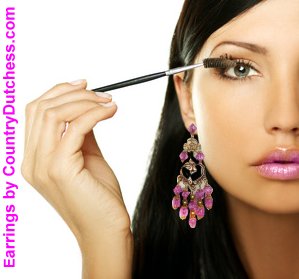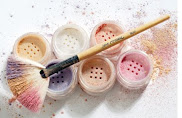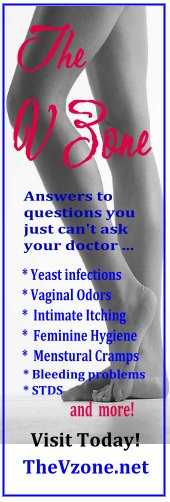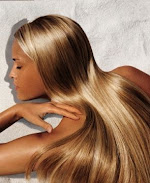
You've all seen the commercial, I know: He's a 50-something in the wet suit with surf board; she's a 40 -something in a bathing suit by his side; their slogan " Never trust anyone over 90".
It's a commerical for hair dye. But no matter. The bigger message seems to be that the generation that introduced us to free love - and then, later on, more costly Viagra - are still supposed to be spending all their free time in speedos and red lace thongs, having sex in the back of a day-glo van.
And I guess, for some, maybe that's true. But when you talk to baby boomer women ....well you know for sure it's not true for everybody. Indeed, as millions of boomer-age gals enter perimenopause and then transgress to menopause and beyond, many say they check their sex drive at the door.
"It's the number one lifestyle complaint I hear from my patients - they just don't feel like having sex, and they can't understand why," says NYU cardiologist Nicea Goldberg, MD, author of the brand new Complete Guide To Women's Health.
So okay, I think it's safe to assume that most of us are not exactly at our emotional best when going through menopause. I get that. We all get that.
But midlife doesn't have a strangle hold on crappy emotions. They also occur when we're single, when we're pregnant, when we lose a job or a friend or a really great hairdresser - and that can happen anytime in life. And is our sex drive always affected?
Well it is. But the difference is, when we are young it seems to sort of drift back on it's own, without much prompting on our part. Not so as we age. In fact, studies show that once you're past 45 or so, the longer you stay away from sex, the longer you're going to stay away - even if your emotional ups and downs taper off.
Which is why many experts believe that emotions alone don't tell the whole story when it comes to mid life women and sex. Problems are, in fact, clearly tied to something that is happening physiologically - most prominently, rapidly shrinking ovaries and all the hormonal cha-chas that go with it.
Indeed, as every woman knows, that time frame just before and right after you ovulate is probably the sexiest time of the month - not a mistake on mother nature's part, for sure, since this is also the time when we are mostly likely to get pregnant.
But fast forward a few dozen years and ovulation begins to dwindle and, eventually, stop. And when it does, that little monthly boost to our sex drive that's been occurring since, oh, I don't know, junior high school, well it takes a hike.
Are you gonna notice? You betcha.
"Many women feel that 'bump' much more than others, but every woman feels it to some degree," says Goldstein.
Add to this the fact that when our ovaries begin to check out, so does all that estrogen that has been casually free-floating through our veins, moistening up all those dry nooks and crannies and basically making the act of having sex feel as good as the thought of wanting it.
The end result: The era of free love can feel like it's coming to a much unexpected screeching halt.
NOW...The Good News!
For many women, just the simple act of understanding what is going on physiologically is enough to allow them relax about things - and let the changes that are going to take place anyway, run their course. Oftentimes, as our bodies gets used to lowered hormone levels and the other changes, we get past that "bump" in the road, and find a new, and some say even sexier path to follow.
And certainly, you can always put the aging process on hold for a bit with HRT - hormone replacement therapy. While it's no longer recommended for long term use, certainly in the short term, it is okay for some women - and the extra estrogen alone will give you an almost immediate boost to your desire for sex.
But if either of those options don't sound quite right for you, take heart - there are still things you can try. Indeed, the experts I talked to say there is no reason for any woman to put her sex life on the back burner no matter her age - and talking to your doctor about it can help. To this end, here's a few logs to throw on the fire - and get the conversation going!
1. Get your thyroid tested and have your doctor check for iron deficiency anemia. Expert say both disorders can impact your sex drive - and both are easy to fix.
2. Talk to your doctor about local estrogen therapy -creams and suppositories you apply directly to your V zone. They don't have the same kind of systemic effects of oral estrogens,
( they remain, for the most part, where you put them) but they can help soothe dry V zone tissue and add the juice necessary to make sex feel good again - in and of itself a boost to your sex drive.
3. If you're looking for an "all natural" solution, try Vitamin E. Used locally in the V zone, studies show it can rehydrate tissue and increase sensation. Apply it several times a week, whether or not you're anticipating sex, and over a few weeks time you should begin to feel an increased sensation in your V zone. You can also get a similar effect using KY Jelly or products like Astroglide - but again, doctors say the key is to use them every day, not just when you're going to have sex.
Sex, Menopause and Victoria's Secret
Finally, it's also important to keep in mind that you shouldn't feel obligated to emerge from menopause swinging from a chandelier in Victoria Secret underwear. For some, particularly those who no longer have a partner, a reduced sex drive may actually be a welcome change - and not something you'd be eager to transform.
There is nothing wrong with you - and you don't need treatment!
In fact, as Goldstein reminds us, "Just because your sex drive may be different at midlife it doesn't mean there is something wrong or that you have to try and fix it. If less sex isn't bothering you, your partner, or your relationship, then take heart -- you are maturing in the way nature intended."
For more ways to handle all the changes occurring in midlife visit www.YourMenopause.com - The Source For Midlife News & Information.



































































No comments:
Post a Comment